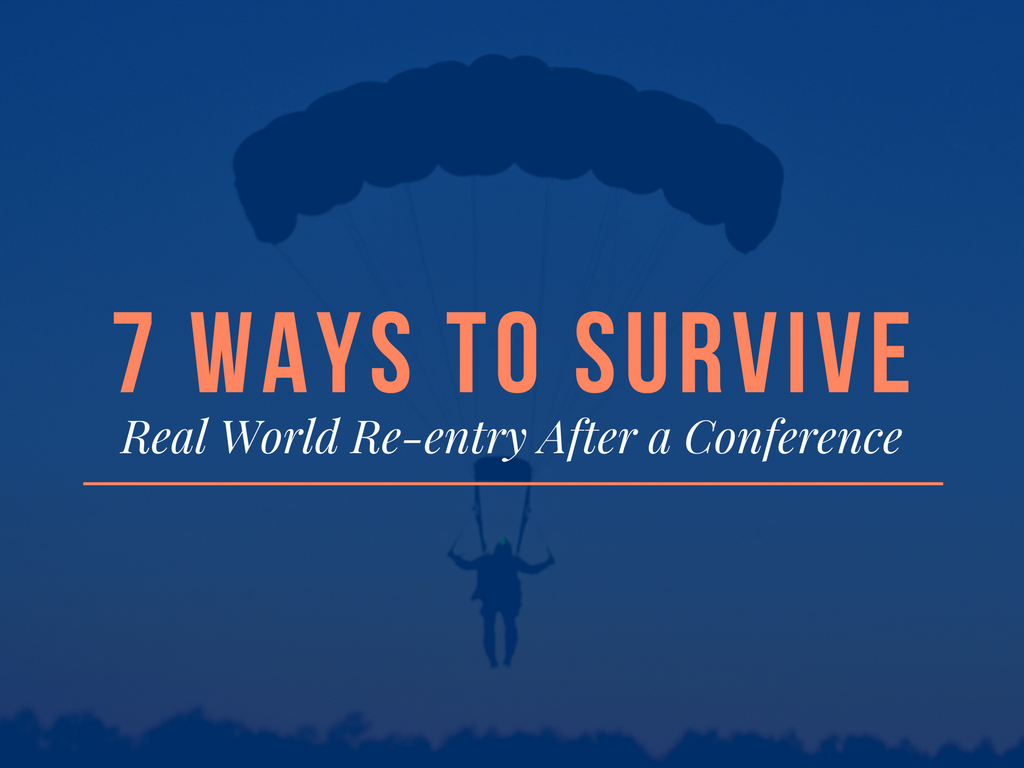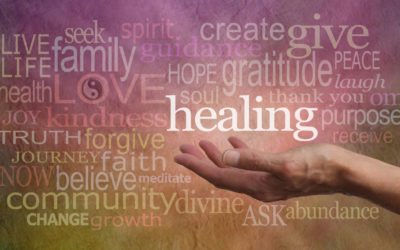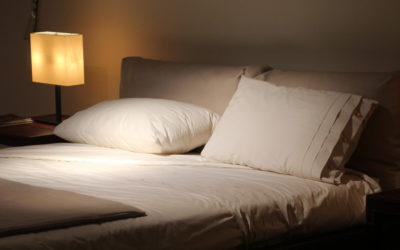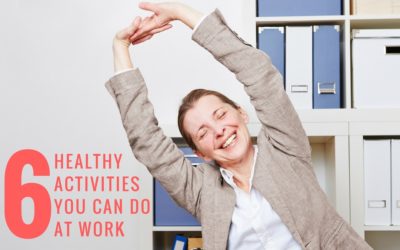I’ve just spent several days at a conference, and if you’ve ever been to a conference, you know how it feels coming back to “the real world.” Depending on the intensity of the conference or event and the fun you’ve had in the after-hours catching up with old friends and colleagues, the re-entry home may have some challenges.
It probably wouldn’t be a stretch to apply this to vacation, as well. How many times have you thought, “I need a vacation to recover from my vacation!”
I’ve heard this called “conference drop” or “event drop,” and it could be considered a close relative to the “post performance drop” that happens to actors, musicians, and other performers. To put it even more clearly, this is a temporary, situational depression that happens.
You know you’re “dropping” if you find you are experience a persisting sadness, bouts of crying, anxiety and panic attacks, as well as lethargy and a general lack of interest, fatigue, and excessive sleep. Generally, these feelings may begin a day or two after the return home, and could last upwards of a week. That said, everyone is different – and depending on the intensity of the conference or event, the onset of drop could be faster or slower, it may last longer or be quite brief, or, for those lucky individuals, you may not drop at all!
There’s actually a really good reason with sound physiological causes behind why this is happening. But most importantly, keep in mind, this is perfectly normal. Just because you’re feeling it more than others doesn’t make you flawed or broken! In fact, pat yourself on the back for being an exquisitely ‘feeling’ type of person. Be real, and be you.
So here’s the science behind event drop: your body is reaching a “crash” status after a period of time where you had high amounts of endorphins and neurotransmitters (dopamine and serotonin, to name a couple) coursing through your body’s systems. Your sleep schedule has also been altered (if you slept at all), and you’ve probably also been eating foods with higher fats, sodium, and calories than you would normally choose for yourself. Your body is off-balance, and struggling to find that magic homeostasis point again.
How do you deal with all of this and get back to balance? If you guessed self-care, you guessed right, you smart cookie!
In no particular order, here are my 7 tips for surviving real-world re-entry:
Take it slow.
I like to take an extra day off after my return home (two, if I can swing it) to do some of the mountain of tasks that need to be done. I don’t do all the things. You’re already tired, why work yourself into an early grave? Seriously. I pick maybe two big, hairy objectives to accomplish, so that I can feel like I accomplished something and checked it off the list. More often than not, those two things are: empty my suitcase, and do laundry – if and only if I absolutely must have more clean underwear. Chances are, I’ve washed every single stitch of dirty clothing I own before leaving for the conference, so there’s just clean clothes to put away. (Pro tip: I cannot even begin to say just now nice it is to come home to a clean home where I don’t have to even think about doing a thing right away – I highly recommend it.)
Give yourself permission to do less. If you’re like me and you find even that hard to do, get out a piece of paper and write yourself a note. Blame it all on me if you must:
Dear me,
Kat, my massage therapist, said it’s okay to do less for ____ days. This is my signed permission slip.
Love,
me
Get plenty of rest.
Resist the urge to continue the late-night sleeping pattern, trust me on this one. Go to bed early, set an alarm for a generous 9 hours of sleep, and go. to. sleep. Don’t check email, don’t even think about looking at social media. Turn off the lights, close your eyes, and let sleep happen. During the day, if you feel a nap attack coming on, let that happen, too. (Why didn’t I learn in kindergarten to appreciate the mid-day nap???) If you know you’re the type to be groggy and woolly-headed if you’ve napped too long, set an alarm for 20 minutes or an hour, but do take the nap.
Move your body.
Go for a walk, jog, or run. Move your body in some way – bonus points if you can get outdoors and enjoy nature while doing it. I find yoga to be especially beneficial – not only for my body, but also for my mind. This may be a good time to drop in to a new class you’ve been curious to try. You’ve been sitting for hours in those horribly uncomfortable event chairs (and then, likely a car or plane home). Be kind to your body after all of that.
Eat especially healthy.
You may already be careful in what you select to fuel your body, but now would be a good time to be especially mindful of proteins, healthy fruits and vegetables, and good carbs. Your body is working hard to get back to homeostasis and it needs the best fuels it can get right now. Sugar and caffeine highs and lows are not helpful and only make things worse. And don’t forget to drink plenty of water.
Choose a creative outlet.
Journaling can help especially with processing and retaining new information, as well as any emotions that come up during or after the event. Coloring, drawing, creative writing (or the fun, creative activity of your choice) can also help with taking your mind off the drop itself, or any lingering negative things from the event.
Don’t isolate.
The temptation may be to completely cut off contact with the outside world during your re-entry time, but don’t. If you’re an introvert like me, you may feel you need that time away from people to recharge, but when someone calls to check on you, please do answer the phone (if nothing else, for their peace of mind!). Or, if you’re up to it, call a friend from the conference or event to say “hi, thinking of you, how are you doing?” This is an excellent time to support one another. Just because you may not be feeling the drop as badly, someone else may be and your check-in could make all the difference in the world. Keep it brief, of course – or send an email or text message if you’re not sure you want to really talk to someone yet.
Get a massage.
You knew I was going to suggest this, right? Massage can help with insomnia, anxiety, digestive issues, headaches, and the assorted aches and pains you may be feeling due to chronic conditions or general soft tissue strains. I also love that when I’m getting a massage, I can truly shut off my brain and simply BE, right there in that moment. Remember the commercials – “Calgon, take me away”? That’s massage for me. So since you’re taking time off for self-care, you have time to get that massage. Schedule online, or, give me a call or email.
If you find it’s been several days (or even weeks), and these feelings and the depression are persisting, you may want to consider seeking additional, professional guidance. The National Alliance on Mental Illness (NAMI) and the Depression and Bipolar Support Alliance both offer excellent resources and information. Seeking support when you need it is also a key element of good self-care.
Be gentle, and be kind to yourself. You’re the only you we have!
Do you have other tips for surviving the re-entry back to reality? Please feel free to share in the comments below!





